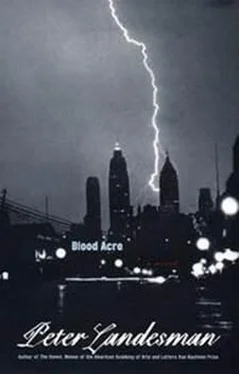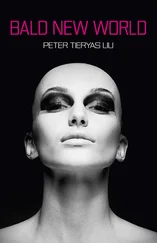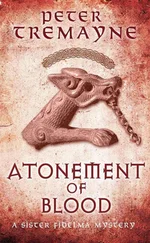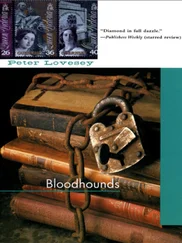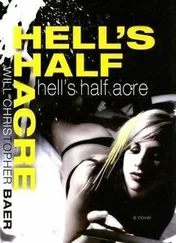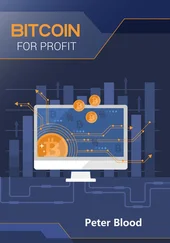"Too much."
"It's not that much." Claire points at her folder. "There's an address here. There's family?" Claire instructs herself to breathe. "Okay. Who is it-was it? Your lawyer."
The girl holds out her palm, as though, there in her hand, the lawyer will appear.
"I need the name. I need to know where to start."
“Nathan Stein."
Claire looks up abruptly. "What did you say?"
"Nathan Stein?"
"That's what I thought you said. And how long have you known Mr. Stein?"
"Know him?"
"How many months, how many years?"
The girl shrugs. "I never-"
"Have you actually met him?" Claire demands. "Have you seen him? Has he ever been here?"
The girl gives a look of defeat. "Mr. Stein will come."
Before Claire's eyes opens an encyclopedia of heroes and villains and combats won and lost, and poisonings and bloodshed. White knights. Fair maidens. Ancient history disinterred from the mud.
"You want your child born and raised in a prison? Because that's what will happen if you wait.", She shuts the folder. "You are going to give birth in a hospital like a human being."
The girl is sobbing into her hands. "I'm taking your case. You're mine."
Nathan's watch, or is it his beeper, chirps like that captive bird somewhere beneath his coat. But the commotion on the boardwalk is spreading. People are lining the rail. A body in red has been dragged up the sand. "Oh, God," he says, and begins to run, wincing at the tug of his suit against a wound he doesn't remember, this one across his left rib cage. Everywhere dogs are barking. He feels the pull of the boardwalk and heads there, then finds his body veering off, taking him another way. He jogs back across Stillwell, under the El, and, looking over his shoulder, slows to a gimpy walk, clutching his chest. "Shit," he breathes. It's all gone, his stamina, his air.
The tide of cold shade has risen high on the brownstone and brick. On the rooftops a forest of naked antennas grabs at the porous light. In a plexiglass door between a doughnut shop and a shoe repair, a girl leans, examining her nails. When Nathan stops she lifts her face. She was one of the girls he'd seen earlier on the beach. Eyes set deep in blue caves. “Where's your friend?" he says.
The girl cocks a hip.,What's wrong with me?"
"There's nothing wrong with you."
“I'm better than her. White meat's better.” She laughs at her own joke. The glass door fogs.
Nathan looks up and down the street, wanting in some place, though not necessarily this place; just some shelter, to solve some need as unutterable and instinctive as a baby's, like air but not as good.
A stairwell narrow and corkscrewed as a steeple's. Nathan's eyes climb the bowed steps, the shaved banister, the girl's thin legs into her skirt, following the gradual warmth of the building that ends at the second floor. The hallway, cold and gray with dirty light, disappears at both ends. There is a strip of yellow under one door and then other closed doors. Doorways clotted by shadow. The girl enters the lighted room without knocking, and Nathan follows.
A thickly walled space, a perfect cube, a high closed window ticking with blown sand and snow. A bulb hangs from the ceiling. Someone has made gestures of cleaning up, a sagging bed unconvincingly made. Beside it a pressboard nightstand painted brown in imitation of wood grain. A half-full glass of stale, bubbled water, illuminated under the dim lamp like a fetish. In the summer the street below is sandy, and salt-dust floats in the room and collects in the lee of upright things, but now the room is clammy and cold, the dust has fallen, and everything is coated in a thin, gritty paste.
"You want dope? Crack, smack, meth? We could do it now." She drops atop the ragged bedspread with her back against the wall. "Or whatever."
Nathan's eyes have settled on a calendar Scotch-taped over the bed, wrong month and old year. He sees there a shot of distant beach: Roatan, or some place just as good. Under an unseen brilliant moon a ribbon of radiant sand meets a white blameless sea. The breathy voice fades in, and Nathan works the private rhythm in his head, The Girl from Ipanema, a young woman rising from the water, passing up the beach-
The saxophone slides in, charming all the senoritas out of the water with thin sighs-
Wearily, the girl unbuttons her thin jacket and the blouse underneath and slips both together off her shoulders. She is narrow, more frail than her clothing has described. Her breasts are adolescent, her skin pale, blue, translucent; her ribs like notched acknowledgments of misdeeds, of bad memories unforgotten.
Nathan meets the girl in the middle of the floor. She is no more than sixteen or seventeen, he sees, her makeup a mask. Her tongue appears in the corner of her lip. Everything she is doing is young and tutored. And he, he knows, is here because he has been, because he can, because he will. Not because he wants to, but because he could. It feels, like everything lately, as needless as it does inevitable. And always what follows is a little dream, a shallow, furtive thing. Usually what comes to mind is someone from his long ago or his day-to-day, someone he's already left, someone safely behind him. Atop one woman he'd imagine another, and another, until, exponentially removed from his life, he'd be as good as dead, beyond harm, dreaming his little dream, until he twitch twitch twitches and opens his eyes, waking from the glorious twilight of his midday nap, and it all comes crashing down around him: the hard strip of lamplight, the touch of her clammy skin, her foreign smell, the crater in the middle of the cheap mattress beneath them like a foxhole-
A soft chirp at his belt. With immense relief, Nathan reaches inside, peering down at the darkened beeper display. Frowning, he reads the message again, losing himself for a moment, then looks up to find the girl naked and blue before him. She has left her socks on. He steps back, shrugging, Can you believe it, at a time like this? Smiling, he presses his business card into the girl's palm
NATHANIEL STEIN, ESQ. ATTORNEY AT LAW
and leaves her standing.
Then gone, safely behind his car's salted windows, switchbacking through traffic across the Belt Parkway to the strains of Leontyne Price's Aida. His eyes are everywhere but the road, settling for a moment on a sheaf of papers on the floor, a brief due in court last Thursday, finished Friday morning early, forgotten Friday morning late, disregarded until now. Cars honk from every direction. He straightens the wheel-he has been drifting between lanes-then reaches for the volume control and calibrates six speakers the size of quarters embedded in the doors and ceiling, a woofer in the glove box, tweeters hidden in the dash, the console as bright and elaborate as a pilot's cockpit-all of it compliments of Julio, who, thanks to Nathan and a brief miraculously unearthed in time, is back on the street in time served instead of inside for fifteen-to-life.
The phone in his breast pocket buzzes. He holds up his watch to the light in the rear-view mirror; not yet four.
"Hello? Hi… No, I wasn't-… a new client… no, not a lot of money, only a couple grand, that's it, look-… What music. That's just traffic. Some accident, ambulances everywhere… Around eight. I'll come by… what? I'm losing you. An underpass. A tunnel. Hold on, I'm losing you-"
Placing the phone face-down on his thigh, he lifts his thermal mug and sips at old, cold coffee. He sips again, holding the liquid in his mouth, and lifts the phone, uncapping the unceasing chatter. "Wait, what?… Serena, how could I? I haven't been near a television all day. What about what boat, can't we talk about it later I have to make a few calls, some bad boys at Rikers Island… Serena? I'm going to lose you. Yes, eight o'clock. Yes, I promise. Another tunnel… I'm losing you-"
Читать дальше
